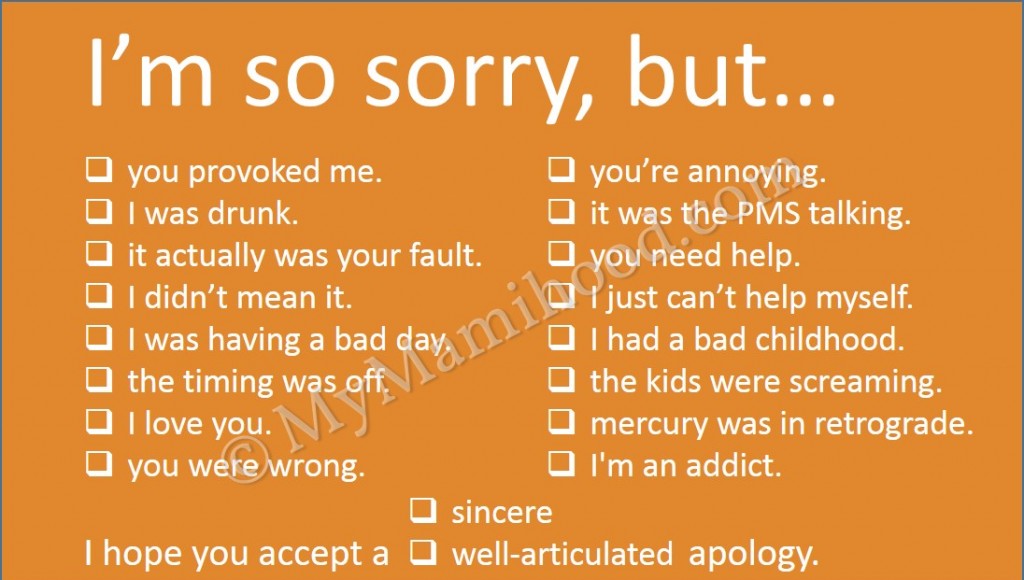3 Ways to Get Your Apology Accepted
Who did it and why? is a question that often comes up in the therapy room. When someone has been emotionally hurt by another, it can be difficult for the hurt party to move forward from a place of pain, anger, and resentment. A common reason for this difficulty is the lack of acceptance of the offending party's remorse. An apology may have been given, but it was not fully accepted.

Here are 3 ways to help ensure your apologies get accepted so you can start bridging the gap in your relationships:
- Listen: The first step to getting your apology accepted is to listen to what has gotten your partner so upset. Give you partner as much time as they need to express themselves; do not interrupt their story and reflect back what they have shared with you when they have finished speaking. The goal here is to understand your partner and for your partner to feel understood.
- Say "I'm Sorry": We often try to correct our wrong before we have actually apologized for our actions. If we feel our partner should not have been hurt by actions, or our actions mirrored one of their own behaviors from the past, we find it difficult to express empathy or remorse to our partner. Saying I'm sorry" is not an acknowledgement of guilt, it is a validation of our loved-one's feelings. If you truly want to move forward and bridge the gap with your partner, you must first validate their experience of you.
- Commit to a behavior change: The most challenging step to having our apology accepted is our follow-through with a behavior change. Gaining insight into your partner's emotional make-up, via steps 1 and 2, will help inform how you can better relate to your partner in the future. Behavior changes can be small or large, but are most effective when they are mutually agreed upon. Remember, your credibility is only as good as your follow-up!
Getting past hurt, anger, and resentment can be a challenge for families and couples. If you are having difficulty managing your relationships, I encourage you to explore counseling services in your local area designed to assist you in learning and implementing communication techniques that improve understanding and strengthen emotional bonds!
This post first appeared on Cheryl's blog.

